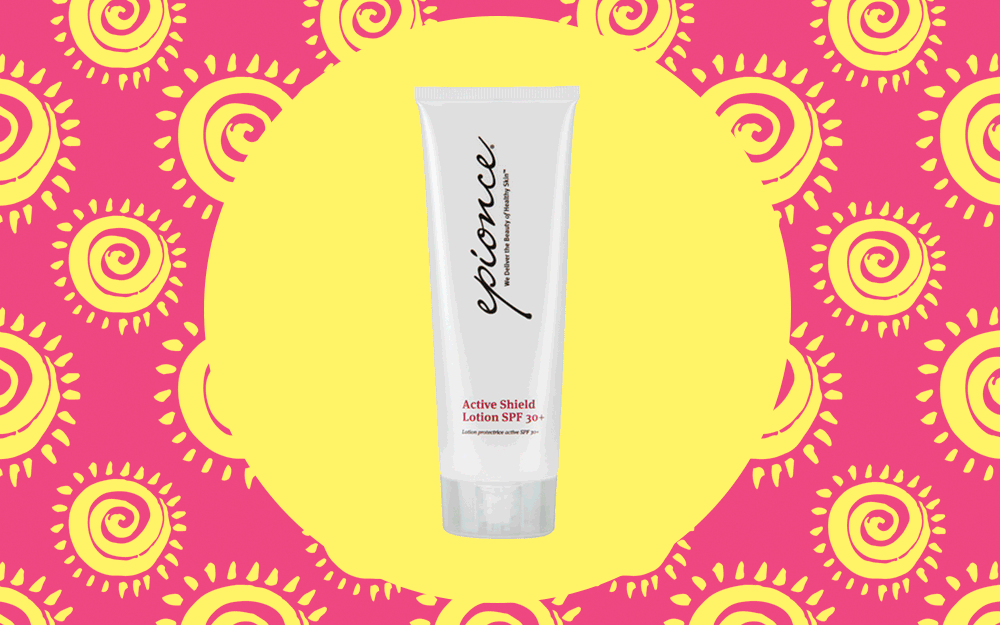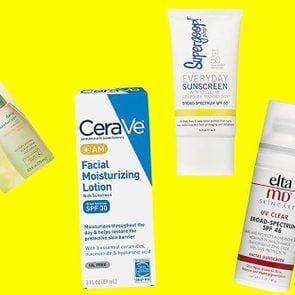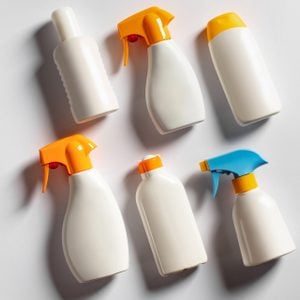The 8 Reef-Safe Sunscreens Dermatologists Love
Updated: Apr. 15, 2021
Protect your skin and ocean creatures when you use these reef-safe sunscreens. You'll find high SPFs and makeup-friendly options below.
Our editors and experts handpick every product we feature. We may earn a commission from your purchases.
What’s a reef-safe sunscreen?
When it comes to buying sunscreen, you know to look at the sun protection factor (SPF) level, which indicates how well the formula protects against the sun’s harmful ultraviolet (UV) rays. But have you ever thought of checking whether or not a sunscreen is reef-safe? Many people haven’t.
If a sunscreen is “reef-safe,” it means that it is less likely to harm coral reefs and surrounding marine life.
“Chemicals such as oxybenzone, octinoxate, and octocrylene, as well as any sunscreens (even mineral-based) with very small particle size (micronized zinc or titanium dioxide), can be toxic to the many organisms in the reef, including the reef itself,” explains Jennifer Segal, MD, dermatologist and owner of Metropolitan Dermatology Institute in Houston. “Larger-particle, mineral-based, chemical-free sunscreens made from zinc or titanium dioxide are considered to be reef safe.”
Why do you need reef-safe sunscreen?
According to Ocean Health Index, a tool that assesses ocean health, there may be more than 100,000 different kinds of chemicals lurking in the ocean waters as a result of waste from commercial products.
“Coral reefs are dying at an accelerated rate, with a question of whether ocean temperatures and environmental pollutants and chemicals, including chemical sunscreens, are at fault,” says Susan Massick, MD, dermatologist at The Ohio State University Wexner Medical Center in Columbus.
“The more likely explanation is that changes are multifactorial, with the troublesome effects of global warming and increased ocean water temperatures playing an even greater role in the blanching of the coral reefs.”
Which chemicals aren’t reef-safe?
Sunscreens are generally split into two categories: chemical and mineral. Chemical sunscreens contain ingredients that may be particularly harmful to sea life as they find their way into oceans. “Chemicals to avoid include the following, some of which have already been practically eliminated from most commercial sunscreens: oxybenzone, octinoxate, PABA, parabens,” says Dr. Massick.
Although there is some question as to whether nano-sized mineral sunscreens have a negative impact, Dr. Massick notes that there is some debate as to whether these nano-particles contribute to polluting the ocean water. For this reason, it’s a wise idea to avoid nano-sized mineral sunscreens.
(These are the safest sunscreens you can buy.)
What should you look for in a reef-safe sunscreen?
The first thing to consider when shopping for a reef-safe sunscreen is that it is mineral-based.
“Minerals such as zinc and titanium dioxide remain on the skin surface rather than being absorbed, and deflect UV rays rather than absorbing them,” explains Dr. Segal. “Moreover, they soothe the skin, so in addition to protecting the skin effectively from the sun, they also are less likely to irritate the skin—especially sensitive skin.”
Deanne Mraz Robinson, MD, assistant clinical professor of dermatology at Yale New Haven Hospital and co-creator of Pure BioDerm, a clean skin care product line, recommends reaching for sunscreens that are non-nano, as Dr. Massick described above. “A formula labeled ‘non-nano’ or ‘free of nanoparticles’ means the chemicals have large molecule size, making them too large for coral to ingest,” she explains.
The best reef-safe sunscreens
If you’re in the market for a reef-safe sunscreen, check out these expert-recommended brands.
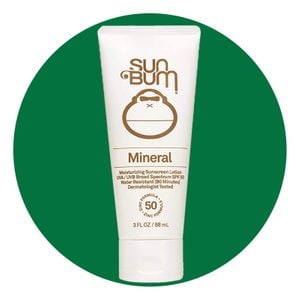
Sun Bum Mineral SPF 50 Sunscreen Lotion
$12
This reef-friendly, vegan, and mineral-based sunscreen from Sun Bum is a good pick for adults and children too. It’s free of octinoxate and oxybenzone and provides both long wave ultraviolet A (UVA) and short wave ultraviolet B (UVB) protection. “It is lightweight, nongreasy, hypoallergenic, cruelty-free, and is a great value for a quality formula that is safe to use on the whole family,” adds Dr. Robinson.
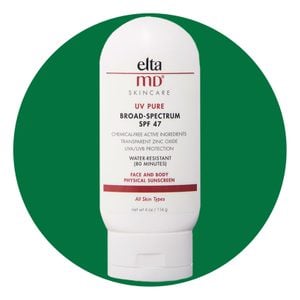
EltaMD UV Pure Broad-Spectrum SPF47
$28
This EltaMD mineral sunscreen uses both zinc oxide and titanium dioxide as the two active ingredients to shield the skin from the sun’s harmful UV rays. Dr. Segal loves to recommend this brand to children and whole families because it does not irritate the eyes if it gets into them while swimming or sweating. It is also safe for skin conditions, including eczema and rosacea.
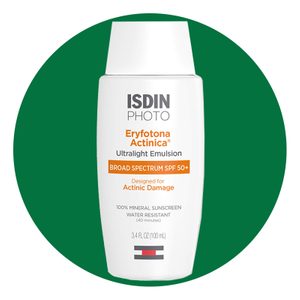
Isdin Eryfotona Actinica
$55
Zinc dioxide is the active ingredient in this reef-safe mineral sunscreen. “The ultra-light emulsion is easily spreadable and instantly absorbed and forms a protective shield with SPF 50+ protection,” says Dr. Robinson. This Isdin formula includes repair UV skin damage ingredients, such as antioxidants and repair enzymes derived from plankton.
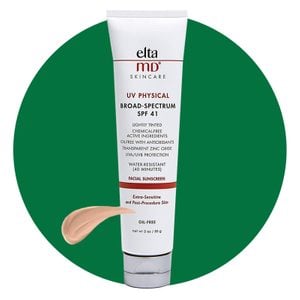
EltaMD UV Physical Tinted Face Sunscreen
$34
If you’re looking for a face sunscreen that offers light makeup coverage as well as sun protection, this EltaMD tinted sunscreen is a great choice, according to Dr. Segal. “It is tinted, mineral-based, provides great protection against the sun and is water-resistant for up to 80 minutes,” she says. She adds that it’s also ideal for outdoor activities like tennis, swimming, and skiing.
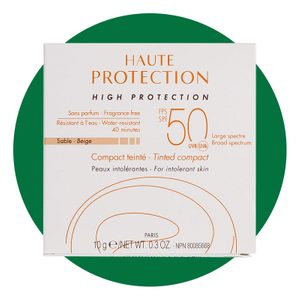
Eau Thermale Avene High Protection Tinted Compact Sunscreen
$32
Eau Thermale Avene is another sunscreen that can serve as a part of your makeup routine. It’s mineral-based, provides full coverage, and stays on throughout the day, according to Dr. Segal. “I wear it every day, especially outside while walking, hiking, swimming, skiing, and playing tennis,” she says. “It can be used anywhere but really perfect for the face and decollete since the compact is perfect for reapplication.”
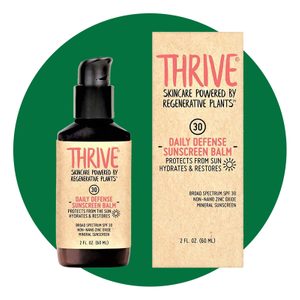
Thrive Natural Moisturizing Mineral Face Sunscreen
$25
This all zinc, non-whitening formula from Thrive blocks out the sun’s rays with a 20 percent non-nano zinc oxide formula that’s non-oily, non-sticky, with a matte finish. It’s sensitive enough for use on the face, which many can appreciate, and is even rich in antioxidants for added skin health.
(Avoid making these sunscreen mistakes.)
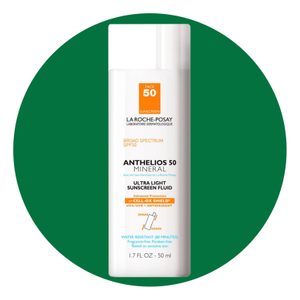
La Roche-Posay Anthelios 50 Mineral Ultra-Light Sunscreen Fluid SPF 50
$37
This 100 percent mineral-based sunscreen from Anthelios is a fan favorite for its non-whitening and fast-absorbing formula. In addition to being mineral-based and reef-safe, it contains Senna alata, an antioxidant that helps shield the skin from free radicals in the environment. It’s also oil-free and formulated for sensitive skin.
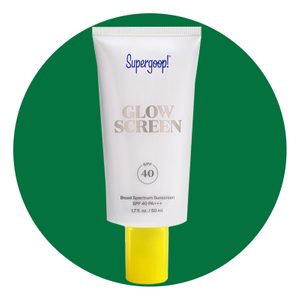
Supergoop Glowscreen Sunscreen SPF 40
$36
This nourishing sunscreen has several ultra-hydrating ingredients including hyaluronic acid, which can hold up to 1,000 times its weight in water, as well as vitamin B5, which helps retain moisture levels in the skin. With SPF 40, Glowscreen is mineral-based and contains cocoa peptides to help fight blue light damage from electronic devices, which recent research in the Journal of Biochemical Physics & Engineering has shown can lead to accelerated skin aging.
Next, these are the signs you bought the wrong sunscreen.

